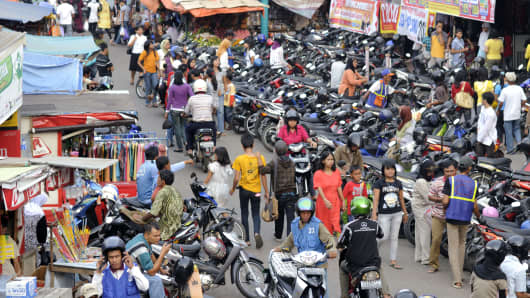Bearish sentiment has gripped emerging markets in recent weeks, leading many strategists to draw a clear line between the good and the bad in Asia.
Expectations that the U.S. central bank is set to start winding down its flow of easy money has sent investors scrambling out of riskier emerging markets in recent months.
In Asia, India and Indonesia have been left battered and bruised with both currencies and stock markets falling sharply this week, raising concerns that the contagion could spread.
(Read more: Brutality scorecard: Which emerging stocks have it the worst?)
The state of a country's current account is proving the key to which markets investors stay in and which ones they flee, analysts say.
"A clear dividing line has emerged in terms of whether an economy is running a current account deficit that is widening or a current account surplus that is increasing," said Tim Condon, head of research for Asia at ING bank.
(Read more: Are emerging markets facing an 'abyss'?)
"Those with a current account deficit are in the 'bad camp,' they will go on re-pricing until tapering has run its course…I believe we are close to that, but the discrimination among emerging markets will continue until that point," he added.
Both India and Indonesia run large current account deficits and have struggled with pushing through structural reforms, with India also grappling with sluggish economic growth.
(Read More: Rupee selling now 'out of control')





